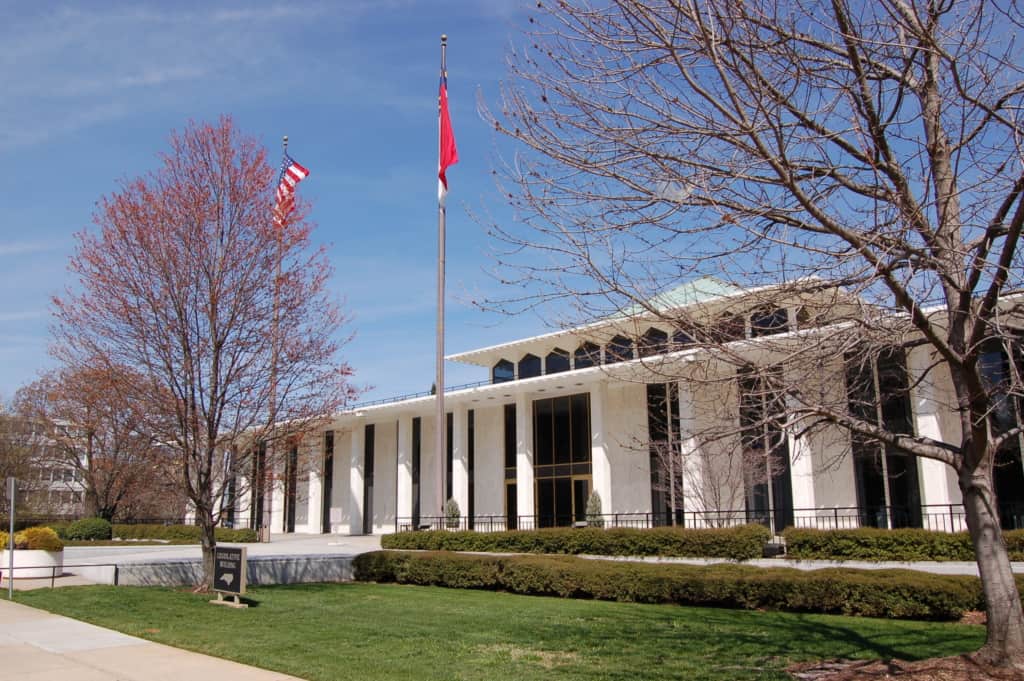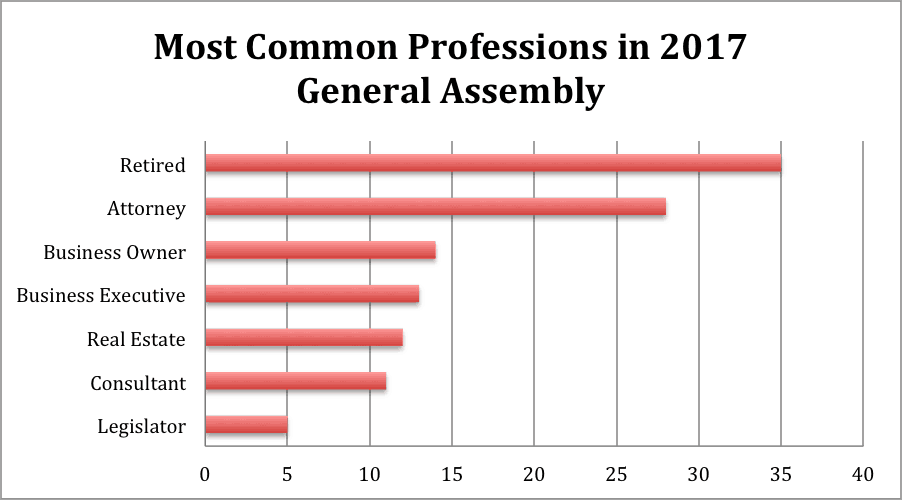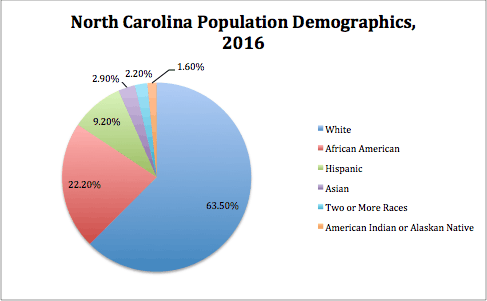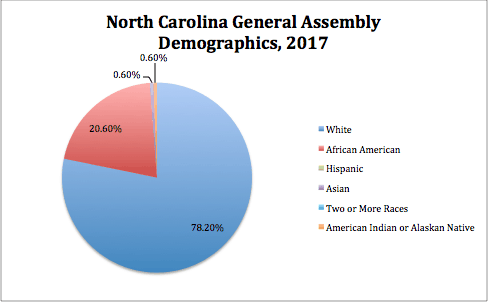
As the General Assembly returns for an extra session next week — and again in September and possibly October and November — many are wondering whether the legislature has become full-time in everything but name.
For a supposedly part-time legislature, the last few years have been anything but. In 2015, the legislature was in session from January 28th until September 30th, a full three months longer than expected as legislators struggled to pass the budget. In 2016, the legislature convened five extra sessions on top of the short session that ran from April 25th until July 1st. And while this year the legislature managed to pass the budget before the July 1st deadline, they are reconvening in August and September and could schedule additional sessions in October and November, meaning that they could be in session for ten months of the year. That doesn’t sound like a part-time job.
Evolution towards a full-time legislature
In 2000, NCCPPR published an NC Insight piece on this exact issue. Former NCCPPR director Ran Coble and Mike McLaughlin concluded:
“At present, there is decision by drift, with evolution toward a legislature that is increasingly full-time, but with compensation lagging at the part-time level because raising legislative pay is too difficult politically.”
Since then, while there have been a few shorter sessions (and the extremely long 2001-2002 session that dealt with redistricting), the overall trend of longer sessions and greater legislative duties has continued.
The National Conference of State Legislatures (NCSL) classifies North Carolina as a hybrid legislature — not part-time but not quite full-time. According to the NCSL, hybrid legislatures spend more than two-thirds of a full-time job as legislators although their income is not enough to support them.
NCSL classifies 26 legislatures as hybrid, 10 as full-time (split into full-time and full-time lite), and 14 as part-time (part-time and part-time lite). Full-time legislatures are paid more, spend more time working as legislators, and have larger staffs than hybrid and part-time legislatures.
States with the largest populations (and therefore largest budgets) tend to have full-time or full-time lite legislatures. Of the ten most populous states (North Carolina is now ranked ninth), four states — Texas, Florida, Georgia, and North Carolina — do not have full-time legislatures.
| Legislature Type | Average Time on the Job | Average Compensation | Average Total Staff |
| Full-time | 84% | $82,358 | 1,250 |
| Hybrid | 74% | $41,110 | 469 |
| Part-time | 57% | $18,449 | 160 |
Source: National Conference of State Legislatures
Is a hybrid legislature still a citizen legislature?
North Carolina prides itself on having a citizen legislature, but what that actually means is unclear. As Coble and McLaughlin discuss, there are three ways to define a citizen legislature.
Traditionally, a citizen legislature has meant having a part-time legislature so that legislators can maintain their jobs back home in their districts. However, some see citizen legislature to mean that the legislative body is representative of the citizens of North Carolina in terms of race, gender, etc. Others view a citizen legislature as one in which anyone can afford to serve. Which view you hold will inform whether you think North Carolina should have a full or part-time legislature.
As it stands, the current legislature doesn’t fit any of these definitions of citizen legislature.
Longer sessions mean fewer legislators hold jobs at home
Long sessions have made it difficult for legislators to hold a job back home. As a result, more legislators are either retired, independently wealthy, business owners, or lawyers who can afford to work one day a week while in session.

The News and Observer’s Lauren Horsch recently described how former Rep. Charles Jeter resigned in 2016 after two terms because he was unable to legislate and run his trucking business, which supported his family financially. Rep. Carla Cunningham, lost her nursing credentials because she went more than six months without practicing during the 2015-2016 session.
These stories are not uncommon. As the sessions have gotten longer, it’s gotten harder for legislators to maintain a second job. If the legislature does reconvene in October and November this year, it will be in session for ten months in 2017. And this isn’t even counting the extra duties that are required — speaking to constituents, going to events, and running for reelection every two years.
General Assembly is not representative of N.C. population
North Carolina also does not have a citizen legislature if the definition is a legislature that is demographically representative of the state. Twenty-six percent of the Senate and 25 percent of the House is female, compared to 51.4 percent of the state population. Representation is slightly better when it comes to race: 22 percent of the Senate and 20 percent of the House is African American compared to 22 percent of the state population. However, while nine percent of the population is Hispanic, there are no Hispanic lawmakers in North Carolina.


Low pay means many citizens cannot afford to be a legislator
Finally, we certainly do not have a citizen legislature if the definition is a legislature where all citizens can afford to serve. Legislators in North Carolina receive a salary of $13,951 a year with a per diem rate of $104 while in session. They also receive travel reimbursements of 29 cents per mile. If the legislature is in session for seven months, a legislator can expect to make around $33,000 — well below the median income in North Carolina of $47,830 in 2015. With pay that low, it’s no surprise that many legislators are older — past their prime earning years — or independently wealthy.
Looking ahead
Regardless of how you define a citizen legislature, the current legislature does not satisfy any definition. However, the potential remedies are different depending on the definition.
If you believe legislators should be able to hold another job at home, then limiting the session length is one solution. At a news conference in July, Governor Cooper expressed concern over the extra sessions scheduled, saying, “I hope they [the legislature] can get their work done and go home. I think everybody would be happy.” Many legislators and constituents agree, however, efforts to limit the session length have stalled and died in the legislature the past two years.
If you believe the legislature should be more representative of its constituents or that anyone should be able to afford to serve, raising legislator pay is a solution. Increasing legislator pay to a sustainable level would allow more people the opportunity to serve and (hopefully) lead to greater diversity among those representing us. Unfortunately, however, legislators increasing their own salaries is not particularly popular, especially when distrust of policymakers is so high.
As North Carolina’s population continues to grow, legislative sessions will likely only get longer. If left unchecked, we will end up with a legislature that operates full-time but is paid part-time. Is that the kind of citizen legislature we want?
Weekly Insight

